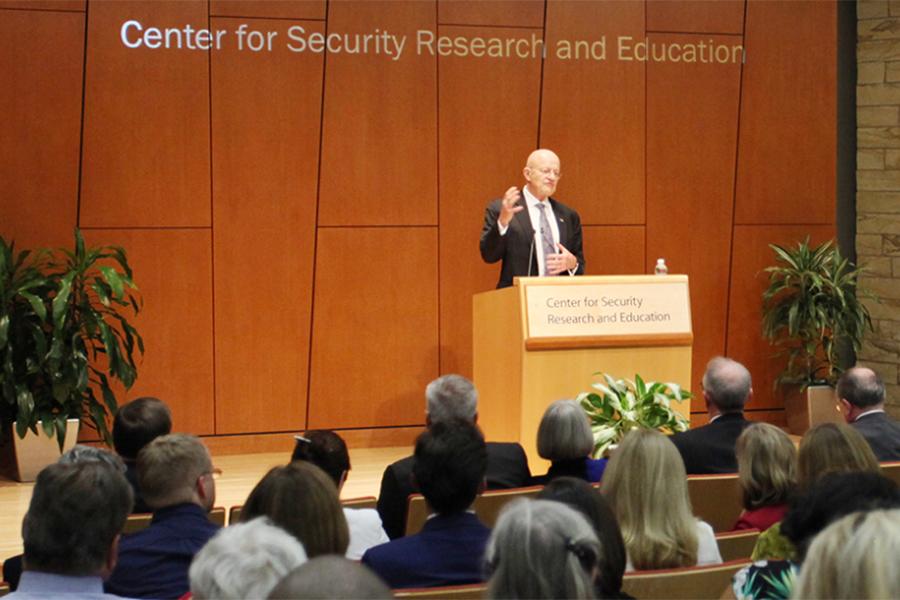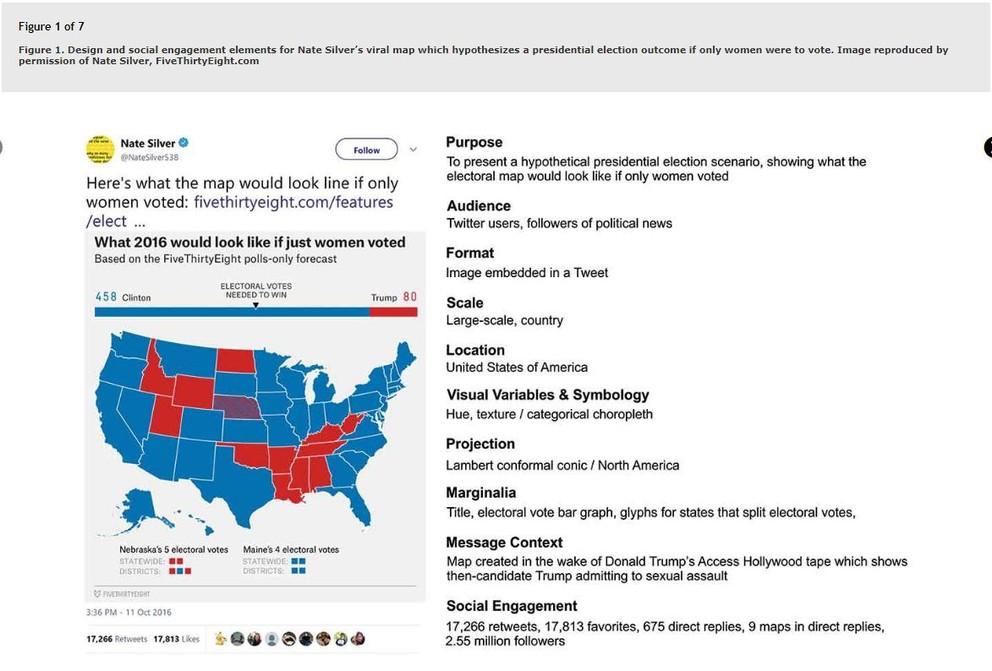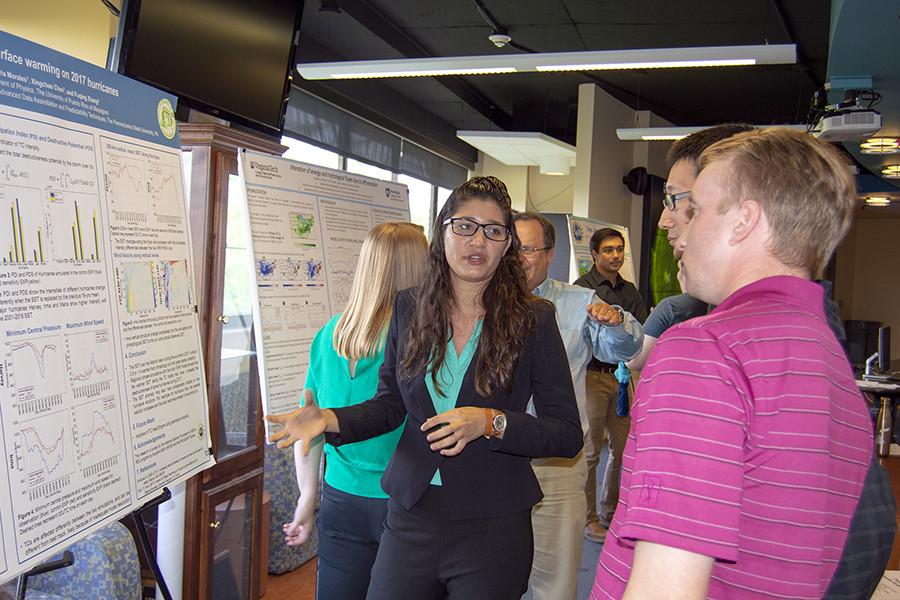Read the latest news about research conducted by investigators in the College of Earth and Mineral Sciences. Our faculty and students are continually advancing technology, creating solutions and expanding knowledge with new and innovative research.
News
A wearable energy-harvesting device could generate energy from the swing of an arm while walking or jogging, according to a team of researchers from Penn State's Materials Research Institute and the University of Utah.
The Center for Security Research and Education (CSRE) at Penn State is announcing its 2018-2019 Seed Grant Program to support security-related scholarship and educational programs at Penn State. University faculty and researchers are eligible to apply in the fall 2018 semester by Nov. 1, or in the spring 2019 semester by Feb. 15.
As the 2016 presidential election was heating up, the statistical news website FiveThirtyEight released a projection map asking what if only women voted; it quickly went viral on social media and was viewed millions of times. That viral cartography event, and what quickly followed, is the subject of research conducted by Anthony Robinson, assistant professor of geography..
Business, language, deep learning, networks, health and cybersecurity — these are a few of the many research areas that have benefited from advances in big data analytics, big simulations and other cyber-enabled methods. They are also the topics slated to be featured in the 2018-19 CyberScience Seminars series, hosted by the Institute for CyberScience (ICS).
A dozen students from around the nation recently wrapped up their summer research projects in the Department of Meteorology and Atmospheric Science, funded through the National Science Foundation’s (NSF) Research Experiences for Undergraduates (REU) program.
The Institutes of Energy and the Environment has announced a food-energy-water (FEW) workshop. The purpose of the event is to build a community of practice around the Food-Energy-Water Nexus, where the sectors of food, energy and water connect.
Improving forecasting for a host of severe weather events may be possible thanks to a more comprehensive method for measuring the Earth's boundary layer depth, developed by Penn State researchers.
There may be more habitable planets in the universe than we previously thought, according to Penn State geoscientists, who suggest that plate tectonics — long assumed to be a requirement for suitable conditions for life — are in fact not necessary.
The West Penn Power Sustainable Energy Fund(WPPSEF) has awarded Penn State New Kensington $75,000 to aid in incorporating sustainability and best practices to the campus-led Corridor of Innovation and revitalization efforts in the city of New Kensington.
Jason Munro, a doctoral student in materials science and engineering, credits two recent scholarships with allowing him to pursue research that’s both his passion and relevant to advancing the needs of society.












